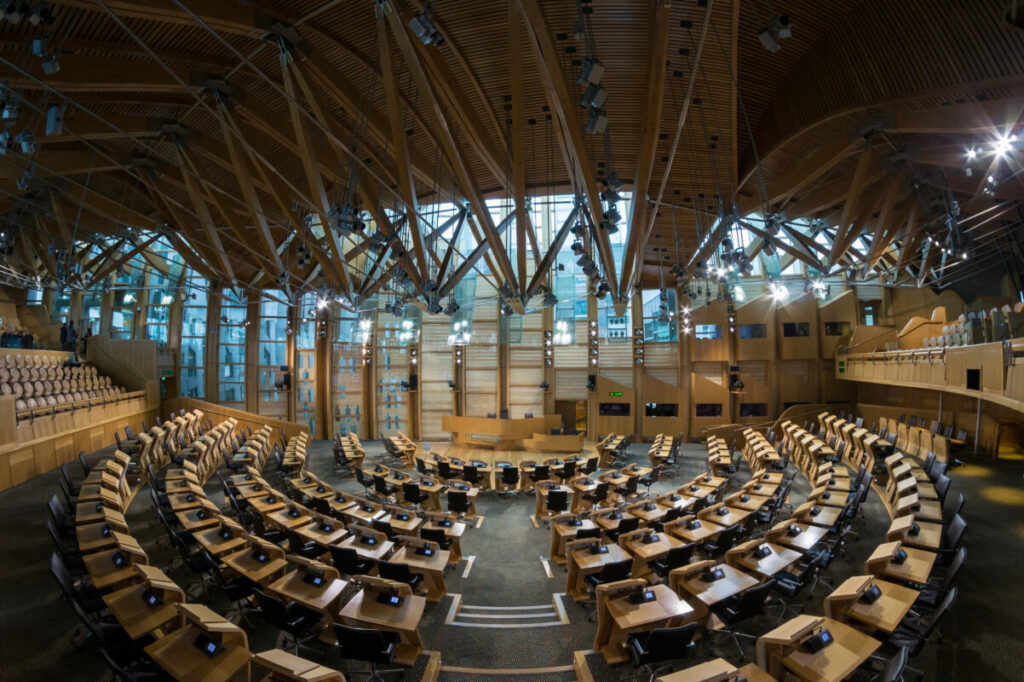Scottish net zero minister Mairi McAllan confirmed today (18 April) that ministers will not reach their 2030 emissions target.
McAllan told the Scottish Parliament that the flagship target of a 75% reduction in greenhouse gas emissions by 2030 is out of reach and will be scrapped. It will be replaced with a system measuring emissions every five years.
Despite accepting that the 2030 target is out of reach, the minister insisted that the target to meet net zero by 2045 will “steadfastly” remain.
Other new measures to cut emissions were announced, including an integrated ticketing system for public transport in Scotland with a first step of publishing a new smart ticketing delivery strategy in 2024.
Following advice from the Climate Change Committee (CCC) the Scottish government will publish a new routemap for delivery of additional EV charge points alongside consideration of how to support consumers transitioning to EVs, targeting rural areas and lower-income groups.
There is little clarity on new targets that might replace what McAllan has described as a “minor legislative change”. Material change from the ditched target may be small, but this is the first Green government in the world to back scrapping emissions targets.
Scottish Greens co-leader Patrick Harvie said he was “angry and disappointed that we are in this position” and it must be a “turning point”.
In March this year, a lack of “comprehensive strategy for Scotland” led the CCC to withdraw a previous assertion that the country would meet its climate goal. After the delay of the Scottish government’s Climate Change Plan (CCP) for 2030 last year, the CCC said the speed required in emission reduction to meet the country’s targets was “beyond what is credible.”
Members of Scottish Parliament (MSPs) heard that wider backtracking on UK climate policy.
Chris Stark, CEO of the CCC, tweeted: “The broader implications of all of this can be easily overstated, but the salutary lesson is that incredible targets are unlikely to be met. Net Zero by 2045 is not an incredible target, as long as there’s a plan to meet it.”
An SNP MSP argued it is important to acknowledge Scotland is going further and faster than many other comparitive countries.
Climate change has formed a key part of Scottish government policy since 2019, when legislation was passed to speed up the rate of decarbonisation. That’s when the 75% reduction by 2030 target was set, at 5% more than experts had recommended.
COP26 was hosted in Glasgow in 2021, and last year first minister Hamza Yousaf claimed Scotland provided “moral leadership” on the climate crisis.
In March of this year, Transport Scotland established a plan called the HGV Decarbonisation Pathway for its Zero Emission Truck Taskforce. The transport sector is the largest emitter of greenhouse gases in Scotland, and, as of 2019, emissions from HGVs account for 12% of Scottish road transport greenhouse gas emissions.
Back in January, the Microgeneration Certification Scheme revealed that in 2023, small-scale solar installations in Scotland increased by 174% compared to 2020. With over 200,000 installations, as of 2023, nearly one in ten (8.23%) of Scottish households have MCS-certified renewable energy technologies in their home.
The scrapped targets were legally binding and it seems that the law will be changed to reflect that ministers will not reach it. It is not yet clear what the consequences of missing the target will be.






